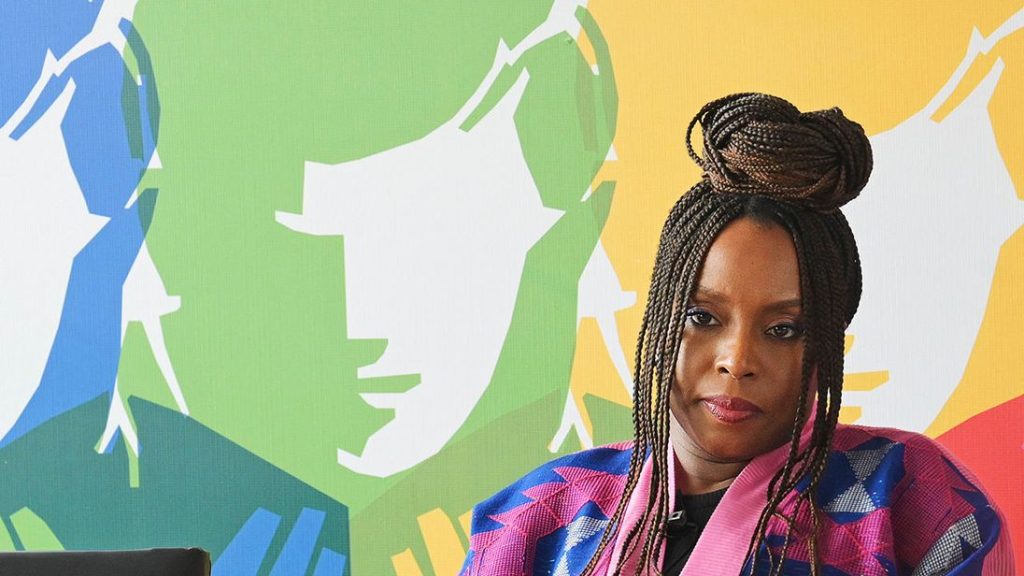The celebrated thinker and writer is at her best not in the realm of fiction, but of fact
Dream Count. By Chimamanda Ngozi Adichie. Knopf; 416 pages; $32. Fourth Estate; £20
Can you be a good polemicist and a good novelist? To judge by the accolades offered to Chimamanda Ngozi Adichie, you can. Her novels have been lavished with awards and praise: “Americanah,” her third novel, won a National Book Critics Circle award in 2013 and was named one of the New York Times’s 100 best books of the century. Meanwhile, her polemics have been acclaimed by readers and, better yet, by Beyoncé (the singer used lines from a speech by Ms Adichie in a song, “Flawless”).
Some of this hoopla is justified. As a polemicist Ms Adichie is brilliant: funny, eloquent, prescient and brave. In 2012 she gave a TED talk, “We should all be feminists,” which has since been viewed nearly 14m times. In 2017, years before people had started to debate whether trans women really were women—and wonder whether it was permissible to say if they thought not—she argued that “Trans women are trans women.”
In 2021, just as the world was waking up to “woke,” she wrote a scathing essay on social-media “sanctimony:” “We are no longer human beings” but “angels jostling to out-angel one another…God help us.” It was so popular it crashed her website. Ms Adichie does not merely articulate a new orthodoxy, she argues it into being.
But being a great polemicist does not necessarily make you a great novelist. Few writers manage both (George Orwell, Leo Tolstoy and Emile Zola are rare exceptions). To the outside eye, this seems odd: the skills look so similar. Both novelists and polemicists sit on their bottoms and put words onto a page. But in truth the skills are almost entirely opposite. A polemic must tell you what to think; a novel never should. A polemic is explicit; a novel implicit. The problem with “Dream Count” is that it attempts to be both—and so succeeds as neither.
The book’s structure is simple: it moves between the interlocking lives of four women as they themselves move between places such as America, Britain and Nigeria. Along the way they endure genital mutilation, forced marriage, sexual assault and the bloodier assault of childbirth, with its “vulgar helplessness.” The possibility for polemic is clear: women’s lives are filled with struggles and pain.
Of the four characters the main one, Chia, a writer, is the best-drawn and most likeable. She goes to drab academic parties at a glittering American university where people say things like “problematic” a lot. She reads books on Denmark’s slave trade to attract a hunky academic. “I wasn’t interested in Denmark’s slave trade but I wanted him to think I was; it was a sombre subject, and weighty enough.”
Unfortunately each section is written in that character’s voice, and the novel shifts to a less well-drawn friend, to Kadi (Chia’s maid) and then to a cousin. Kadi is not much like Chia: she does not think acutely clever things about academic pretension. Instead she scrubs floors on her knees and does not complain. Kadi’s speech is rendered simply: as a girl we learn “She liked to shoo the chickens.” As a wife “She knew she should surrender.” She thinks a lot of sentences that start with “she”. Rarely is she given very complicated ones.
Kadi also has a tiresome fondness for the homespun simile: one man has a heart “full of dead leaves,” and a sister is “a winged angel made of sun rays,” a description so sickly that when she dies a few pages later it feels less like a tragedy than a lucky escape from any more adjectives.
Things get worse when Kadi moves to America and is assaulted in the hotel where she works by “this VIP, this naked White man” who is head of the “Multilateral Nations.” What quickly becomes clear, from that ineffectually anonymising “Multilateral Nations,” and even more so from the “author’s note” that follows, is that Kadi is less a person than a parable.
In 2011 Dominique Strauss-Kahn, then head of the International Monetary Fund, was accused of sexual assault by a maid at his swanky New York hotel. She, in turn, was accused by his lawyer of being “evil or pathetic or both.” Fascinated and appalled, Ms Adichie decided to try “to ‘write’ a wrong” and retell this story as a novel.
It is all very noble. What it is not is very novelistic. This book does not work. This is not because of appropriation. All artists are thieves. Any event, to a writer, offers not merely emotion but material to plunder. “There is a splinter of ice in the heart of a writer,” Graham Greene, an English novelist, said. This is not necessarily nice—but it is normal.
What a “novel” concept
The problem in “Dream Count” is a lack of artistry. This book has too many characters, and too many are poorly drawn. There are not just the four leads; there are also their families, cooks, cleaners, drivers and their many lovers. There is Darnell and Chuka and Luuk and then, just when you think it is all over, on page 382 Chia remembers her lover Johan. “Why had I forgotten Johan?” she wonders. Why indeed? And, given that she had, why must she remind the poor reader of him so soon before the book ends?
But the worst section is Kadi’s. It feels utterly unconvincing; worse, you feel lectured. And most readers do not want to be educated. They want to be entertained. A polemical novel can do the former. But it must make sure that it does the latter first. This one fails to, and so fails.
Courtesy: The Economist

